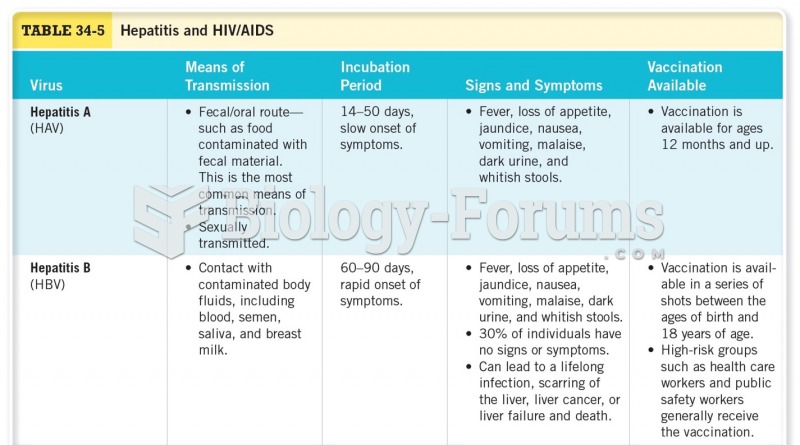|
|
|
Your chance of developing a kidney stone is 1 in 10. In recent years, approximately 3.7 million people in the United States were diagnosed with a kidney disease.
The highest suicide rate in the United States is among people ages 65 years and older. Almost 15% of people in this age group commit suicide every year.
Aspirin is the most widely used drug in the world. It has even been recognized as such by the Guinness Book of World Records.
The cure for trichomoniasis is easy as long as the patient does not drink alcoholic beverages for 24 hours. Just a single dose of medication is needed to rid the body of the disease. However, without proper precautions, an individual may contract the disease repeatedly. In fact, most people develop trichomoniasis again within three months of their last treatment.
To prove that stomach ulcers were caused by bacteria and not by stress, a researcher consumed an entire laboratory beaker full of bacterial culture. After this, he did indeed develop stomach ulcers, and won the Nobel Prize for his discovery.
 New England children like David, Joanna, and Abigail Mason (painted by an unknown artist around 1670
New England children like David, Joanna, and Abigail Mason (painted by an unknown artist around 1670
 Age-standardized disability-adjusted life year (DALY) rates from hepatitis B by country (per 100 000 ...
Age-standardized disability-adjusted life year (DALY) rates from hepatitis B by country (per 100 000 ...





